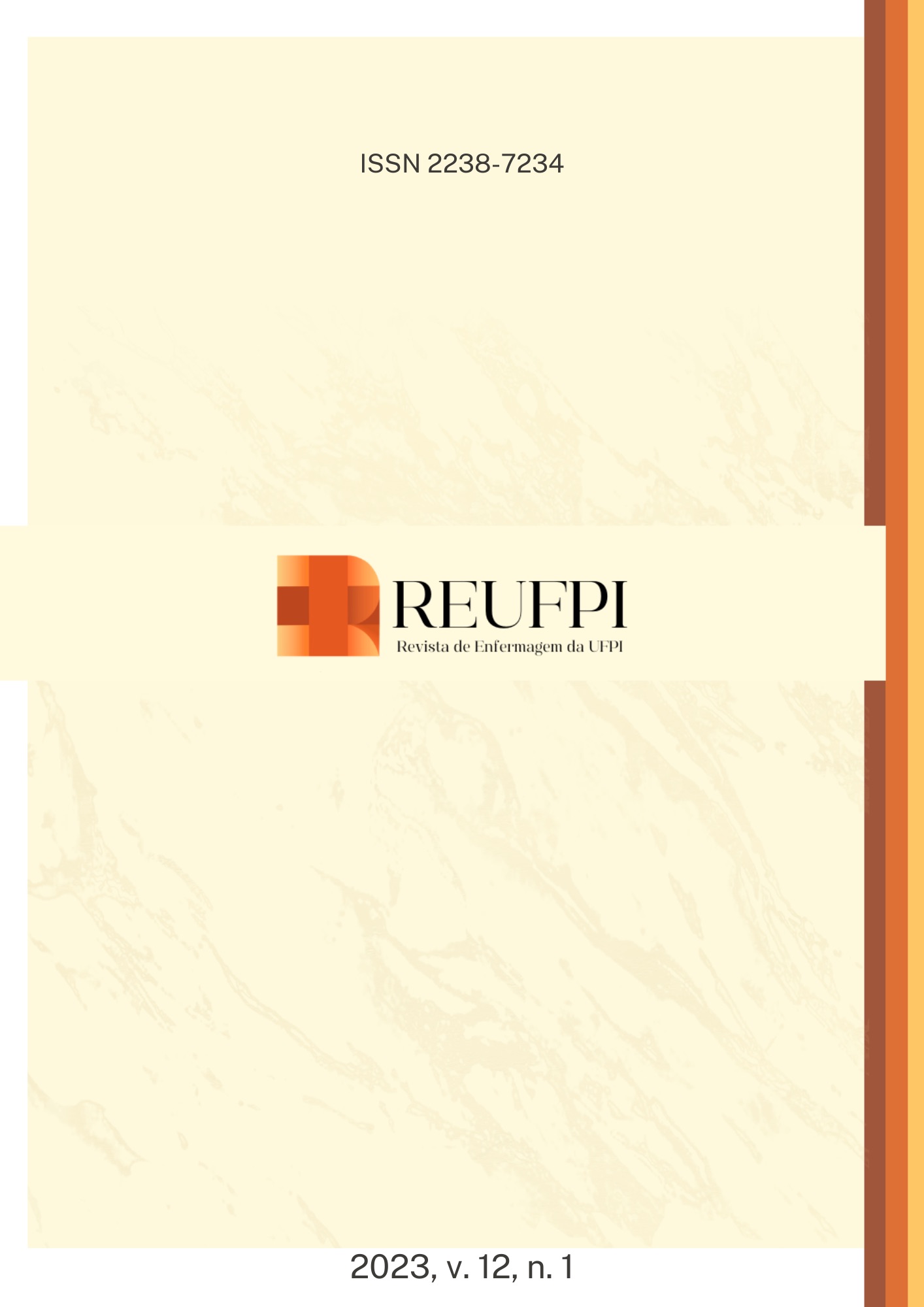To donate or not to donate: meanings of family refusal to the refusal to donate organs and tissues
DOI:
https://doi.org/10.26694/reufpi.v12i1.3613Keywords:
Obtenção de Tecidos e Órgãos, Transplantes, Relações FamiliaresAbstract
Objective: To understand the meanings attributed by family members about the refusal to donate organs and tissues. Methods: A descriptive and exploratory study with a qualitative approach. A semi-structured questionnaire was used for data collection and thematic content analysis was employed for the treatment of the data obtained. The sample comprised by 10 participants was defined by means of the theoretical saturation criterion. Results: There was a tendency for family members to consent to the donation when well-oriented about brain death and the humanistic purpose of the donor, but the main obstacles to refuse donation are as follows: lack of knowledge about organ donation, fear of body mutilation for not knowing how the procedure for removing organs and tissues is performed, bureaucracy with the delay in releasing the body for burial and disagreement between family members. Conclusion: The meanings of family refusal permeate fear, a feeling of emptiness and lack of information about the processes involved in organ and tissue donation, as well as cultural and religious aspects, although despair, pain and lack of empathy of the health teams can also corroborate refusal.
References
Westphal GA, Robinson CC, Cavalcanti AB, Gonçalves AR, Guterres CM, Teixeira C, et al. Brazilian guidelines for the management of brain-dead potential organ donors. The task force of the Associação de Medicina Intensiva Brasileira, Associação Brasileira de Transplantes de Órgãos, Brazilian Research in Critical Care Network, and the General Coordination of the National Transplant System. Rev Bras Ter Intensiva. 2021;33(1):1-11. DOI: http://dx.doi.org/10.5935/0103-507X.20210001.
Zukowska A, Zukowski M. Surgical site infection in cardiac surgery. J. Clin. Med. 2022, 11(23):1-10. DOI: https://doi.org/10.3390/jcm11236991.
Santos FGT, Mezzavila VAM, Rodrigues TFCS, Cardoso LCB, Silva M, Oliveira RR, et al. Trend of transplants and organ and tissue donations in Brazil: time series analysis. Rev Bras Enferm. 2021;74(1):e20200058. DOI: http://dx.doi.org/10.1590/0034-7167-2020-0058.
Westphal GA, Veiga VC, Franke CA. Determinação da morte encefálica no Brasil. Rev bras ter intensiva [Internet]. 2019;Jul;31. Rev. bras. ter. intensiva, 2019;31(3). DOI: https://doi.org/10.5935/0103-507X.20190050.
Conselho Regional de Medicina do Estado do Rio Grande do Sul. Morte Encefálica e Doação de Órgãos. Porto Alegre: CREMERS, 2018. 96p. Available from: www.cremers.org.br/pdf/morte_encefalica.pdf.
Dias LM, Melo MS, Leão GNC et al. Health students' perception of organ donation in Brazil: an integrative review. Research, Society and Development [Internet]. 2022;11(5):e21011527945. DOI: http://dx.doi.org/10.33448/rsd-v11i5.27945.
Rodrigues SLL, Boin IFSF, Zambelli HJL et al. Fatores relacionados à não autorização da doação de órgãos e tecidos junto a familiares que recusaram a doação. Braz J Transpl. 2021;24(4):10-18. DOI: https://doi.org/10.53855/bjt.v24i4.429.
Zúñiga-Fajuri A, Molina-Cayuqueo J. Organ donation and family refusal. Bioethical reasons for a change. Rev Nefrol Dial Traspl. 2018; 38(4):280-5. Disponível em: https://www.redalyc.org/journal/5642/564262518007/html/.
Carvalho NS, Sousa J, Veloso LC, Ataíde KMN. Nurse's professional performance in the organs donation and procurement process in eligible donors. Rev Enferm UFPI. 2018 Jan-Mar;8(1):23-9. DOI: https://doi.org/10.26694/2238-7234.8123-29.
Silva BLM da, Lima IL, Lira VL, Fontes FL de L, Lopes MC de F, Soares JC. Atribuições da equipe multiprofissional diante do processo de doação de órgãos e tecidos. REAS [Internet]. 2019;(24): e454.
Minayo MCS, Costa APC. Fundamentos teóricos das técncias de investigação qualitativa. Revista Lusófona de Educação, 2018; 40:139-153. DOI: https://doi.org/10.24140/issn.1645-7250.rle40.01.
Nascimento LCN, Souza TV, Oliveira ICS, Moraes JRMM, Aguiar RCB, Silva LF. Theoretical saturation in qualitative research: an experience report in interview with schoolchildren. Rev Bras Enferm [Internet]. 2018;71(1):228-33. DOI: http://dx.doi.org/10.1590/0034-7167-2016-0616.
Fontanella BJB, Ricas J, Turato ER. Amostragem por saturação em pesquisas qualitativas em saúde: contribuições teóricas. Cad. Saúde Pública, 2008;24(1):17-27. Available from: http://www.scielo.br/pdf/csp/v24n1/02.pdf.
Santos FGT dos, Mezzavila VAM, Rodrigues TFC da S, Cardoso LCB, Silva M da, Oliveira RR de, et al.. Trend of transplants and organ and tissue donations in Brazil: a time series analysis. Rev Bras Enferm [Internet]. 2021;74(1). DOI: https://doi.org/10.1590/0034-7167-2020-0058.
Borges LP, Brito TS, Lima FDM et al. Organ and tissue donation: perception of family members who chose not to give donation. Rev Enferm Atual In Derme. 2021;95(34):e-021063. DOI: https://doi.org/10.31011/reaid-2021-v.95-n.34-art.1014.
Monte AS, Monte AS, Lima LRF, Freire VS. Epidemiological analysis of candidates for the donation of organs in the states of Ceará, São Paulo and Acre. Rev Fun Care Online. 2019 jan/mar; 11(1):167-72. DOI: http://dx.doi.org/10.9789/2175-5361.2019.v11i1.167-172.
Prado RT, Leite JL, Castro EAB, Silva LJ, Silva IR. Uncovering care for patients in the death/dying process and their families. Rev Gaúcha Enferm. (online), 2018;39:e2017-0011. DOI: http://dx.doi.org/10.1590/1983-1447.2018.2017-0111.
Pimentel W, Sarsur M, Dadalto L. Autonomia na doação de órgãos post mortem no Brasil. Rev Bioét [Internet]. 2018Oct;26(4). DOI: https://doi.org/10.1590/1983-80422018264271.
Basso LD, Salbego C, Gomes IEM et al. Difficulties faced and actions evidenced in the nurses’ performance regarding organ donation: Integrative Review. Ciência, Cuidado E Saúde, 18(1). DOI: https://doi.org/10.4025/ciencuidsaude.v18i1.42020.
Balbino CM, Canavez MF, Castro RBC et al. Process of donation and transplantation of organs and tissues: knowledge of nursing students Research, Society and Development, 2022;11(3): e26811326359. DOI: http://dx.doi.org/10.33448/rsd-v11i3.26359.
Gomes CNS, Araújo DMM, Oliveira HMBS, Sampaio NMF. Nursing perspective in organ donation process: experience report. Rev Enferm UFPI. 2018;7(1):71-4. DOI: https://doi.org/10.26694/2238-7234.7171-74.
Downloads
Published
How to Cite
Issue
Section
License
Copyright (c) 2023 Rev Enferm UFPI

This work is licensed under a Creative Commons Attribution 4.0 International License.
Autores mantém os direitos autorais e concedem à REUFPI o direito de primeira publicação, com o trabalho licenciado sob a Licença Creative Commons Attibution BY 4.0 que permite o compartilhamento do trabalho com reconhecimento da autoria e publicação inicial nesta revista.

























